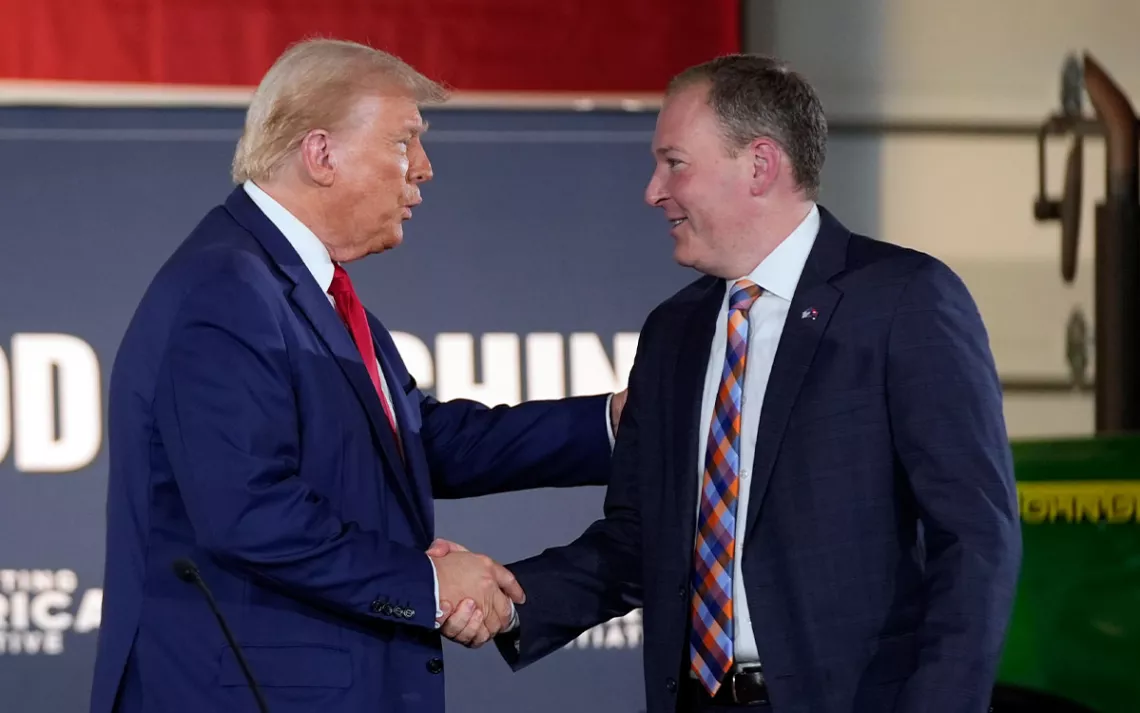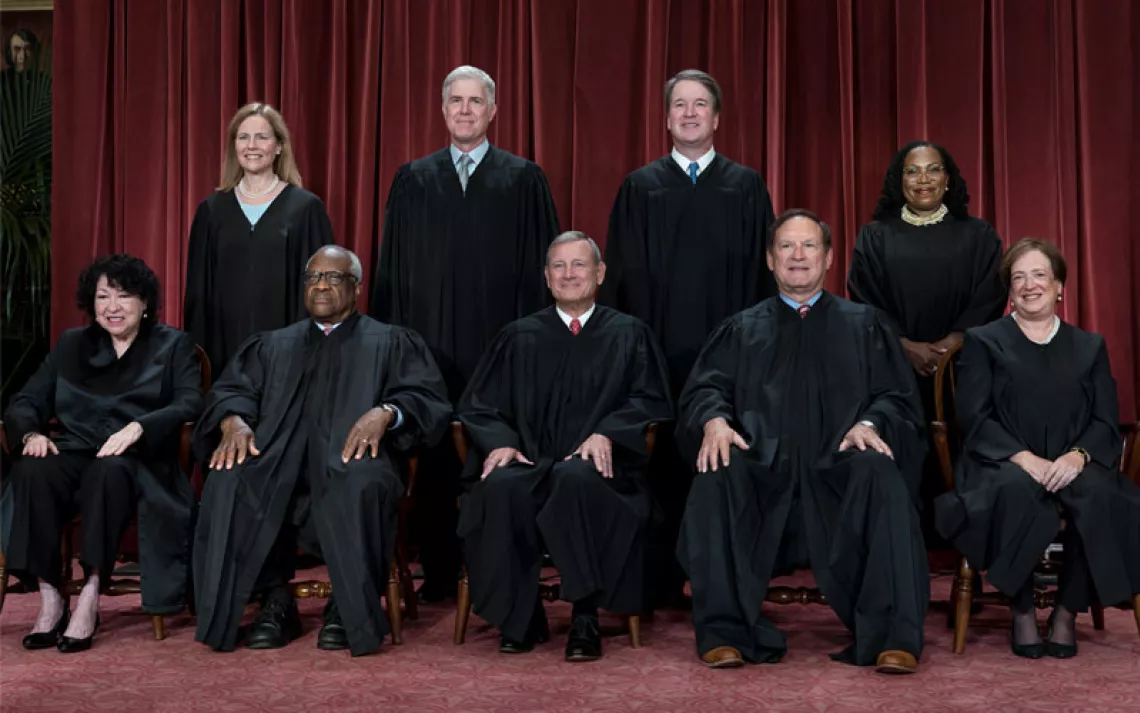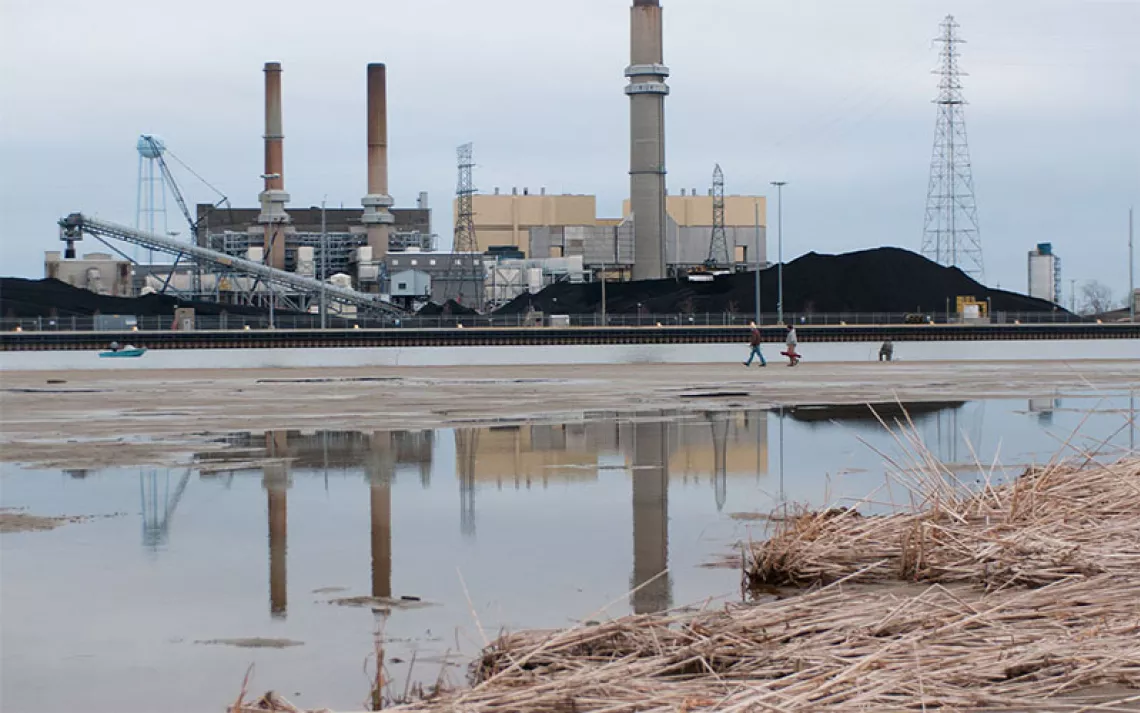Who Is Lee Zeldin?
Trump’s pick to head the Environmental Protection Agency has greens worried

President-elect Donald Trump is greeted by Lee Zeldin during a campaign stop in Smithton, Pennsylvania, in September. | Photo by Alex Brandon/AP
President-elect Donald Trump’s selection to lead the Environmental Protection Agency is, in a word, unexpected. The appointment announced on November 11—in which the Trump transition team erroneously referred to the EPA as the “Environmental Protective Agency”—was not an energy industry lobbyist like Andrew Wheeler or a MAGA insider like Mandy Gunasekara, who authored the EPA chapter of Project 2025. Instead, Trump chose Lee Zeldin, a little-known former Republican congressman from Long Island, New York, whose background on environment and energy issues is relatively skimpy.
So, then: Who is this person who will be in charge of the federal agency tasked with protecting the environment and public health?
Zeldin is a politician and military officer who grew up in New York’s Suffolk County. From 2015 to 2023, he represented New York’s First District (eastern Long Island) in Congress, where he sat on the House Foreign Affairs and Financial Services Committees. Before that, he served for four years in the New York state senate. In 2022, he ran for governor of New York against Democrat Kathy Hochul, a race that he lost by six points.
In statements responding to Trump’s appointment of Zeldin to helm the EPA, environmental advocates generally slammed the selection. Sierra Club executive director Ben Jealous labeled Zeldin as “unqualified” and said, “We will not allow Trump, Zeldin, and corporate polluters to steal our future.”
Earthjustice president Abigail Dillen said Zeldin’s “loyalty to Donald Trump indicates he will gladly take a sledgehammer to EPA’s most recent lifesaving regulations, putting politics over science and endangering our communities.”
Here are five things to know about Zeldin in terms of energy, climate change, and the environment:
He’s a booster of fossil fuels and promises to unleash “energy dominance.”
In his run for governor of New York, Zeldin campaigned on expanding fossil fuel extraction. He called for allowing “the safe extraction of natural resources in the southern tier” of the state, approving new pipelines, and repealing the gasoline tax. He also was a staunch opponent of New York’s ban on fracking and ran on ending it. “[Zeldin] has a record of being pro-fracking, and that’s a record I think he’s going to clearly carry forward into the Trump administration,” Eric Weltman, a senior organizer in Food and Water Watch’s New York office, told Sierra.
Zeldin has mentioned pursuing “energy dominance” as one of three top priorities in heading up the EPA. “It is an honor to join President Trump’s cabinet as EPA administrator. We will restore US energy dominance, revitalize our auto industry to bring back American jobs, and make the US the global leader of AI,” Zeldin said in a statement on X.
He has taken more than $410,000 from the oil and gas industry, and he questions the scientific consensus on climate change.
According to Climate Power, Zeldin has received over $410,000 from the oil and gas industry in his election campaigns, including over $260,000 while running for Congress and more than $150,000 in his gubernatorial run. He has taken more than $60,000 from Koch Industries over the course of his political career, according to Open Secrets data.
On climate, Zeldin appears unconvinced that the rapid accumulation of greenhouse gases in the atmosphere is a serious problem. “I'm not sold yet on the whole argument that we have as serious a problem as other people are,” he said in a 2014 Newsday interview.
His voting record in Congress is mostly anti-environment, with an LCV lifetime score of just 14 percent.
Zeldin unsurprisingly has an overall poor voting track record, as scored by the League of Conservation Voters. “Trump made his anti–climate action, anti-environment agenda very clear during his first term and again during his 2024 campaign. During the confirmation process, we would challenge Lee Zeldin to show how he would be better than Trump’s campaign promises or his own failing 14 percent environmental score if he wants to be charged with protecting the air we breathe, the water we drink, and finding solutions to climate change,” Tiernan Sittenfeld, LCV’s senior vice president for government affairs, said in a statement.
As with every other House Republican, Zeldin voted against the Inflation Reduction Act in 2022, which will invest hundreds of billions in clean energy and climate action—the single-largest climate-related investment in US history. He also supported Trump’s withdrawal of the United States from the Paris Agreement, and in 2022 voted for an amendment, sponsored by Representative Scott Perry, a Pennsylvania Republican, that called for rescinding US participation in the UN Framework Convention on Climate Change. Examples of some of his other anti-environment votes include supporting an amendment to prevent the EPA from implementing its rule to curb methane pollution in the oil and gas sector; voting against an amendment to block Trump EPA’s finalization of a weak standard under the Clean Air Act for particulate matter (soot); and voting against an amendment to fund replacement of lead service lines providing drinking water.
Among the few pro-environmental votes he made while in Congress, Zeldin supported several bills to address PFAS contamination, and he did support a bill to prohibit oil drilling off the Atlantic and Pacific coasts. In 2020, he voted against an amendment introduced by fellow Republican Jason Smith of Missouri that would have drastically slashed EPA program funding. But in 2017, the first year of Trump’s first term, he voted for a Republican amendment to reduce EPA’s budget by almost $2 billion, an amendment that ultimately didn’t pass.
He supported a few conservation efforts for his district.
While in Congress, Zeldin backed several conservation initiatives for his district in Long Island. According to the campaign website for his gubernatorial run, he helped save Plum Island—a tiny island off the eastern tip of Long Island—by securing repeal of a 2008 law requiring it to be sold to the highest bidder. He also worked with the Army Corps of Engineers to “protect our coastlines, advancing the ambitious Fire Island to Montauk Point project,” a climate resiliency coastal risk reduction project to help safeguard Long Island’s prized beaches.
“While we did not always see eye to eye with Representative Zeldin, we did work to find common ground on several issues during his time in office, including on Plum Island, the Great American Outdoors Act, fighting offshore drilling on the East Coast, EPA actions on PFAS, and restoring funding for Long Island Sound,” New York League of Conservation Voters president Julie Tighe said in a statement.
Food and Water Watch’s Weltman was less optimistic that Zeldin’s pro-environmental moves, limited as they may be, would continue under the new Trump administration. “To some extent, you could say he was representing his constituents and the concerns and needs of his community when he did stand up for clean water and a safe environment. But that’s all gone out the window now,” Weltman said, warning that “Zeldin’s mission is to gut the EPA.”
He appears to be against clean energy funding and tried to gut public transit funding in New York.
In addition to voting against the IRA and its massive clean energy investments, Zeldin early on in his political career attempted to divert funding away from clean energy programs in New York and undermine the New York City area’s transit system, according to Environmental Advocates NY. The New York environmental organization bestowed its “Oil Slick” award in 2011 on Zeldin, a rookie state senator at the time who led an effort to try to weaken public transit. He sponsored a bill that would have defunded the MTA, resulted in service cuts and fare increases, and discouraged public transit use. The bill would have also diverted $100 million away from clean energy programs to “plug holes in MTA’s finances.”
“As a state senator, Zeldin even earned EA Action’s 'Oil Slick' award for his dedication to advancing policies that would have gutted transit funding, raided clean energy programs, and weakened protections for our environment. Now, he’s poised to take the helm of the EPA—the agency tasked with protecting the very resources his record shows he’s willing to undermine,” EANY said in a Facebook post last week.
 The Magazine of The Sierra Club
The Magazine of The Sierra Club



